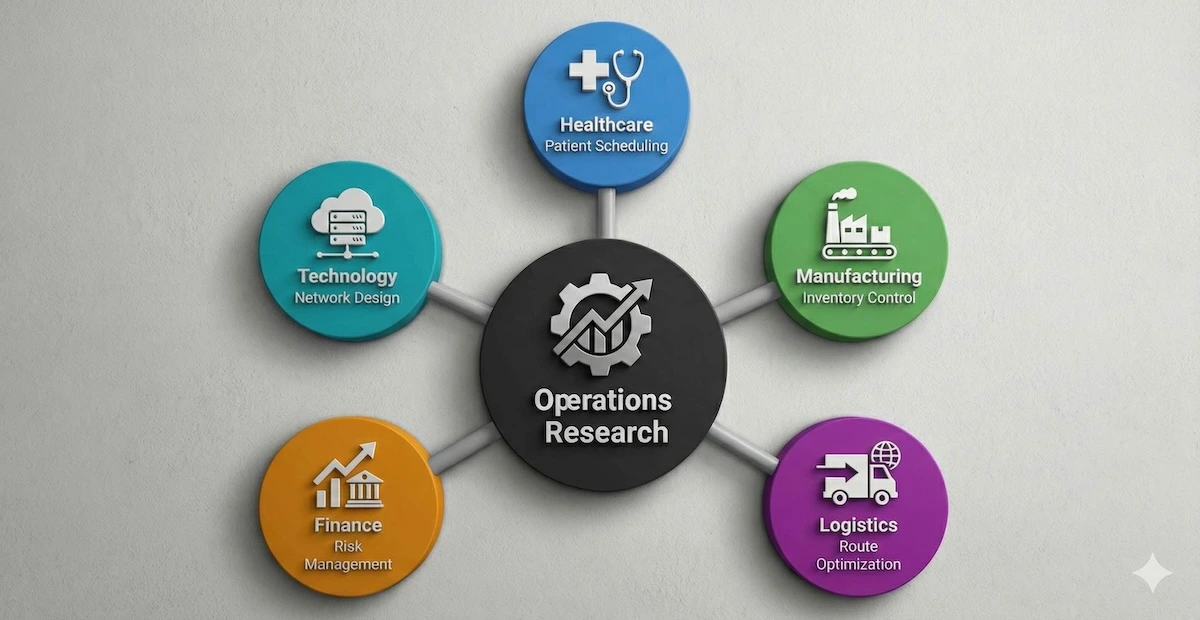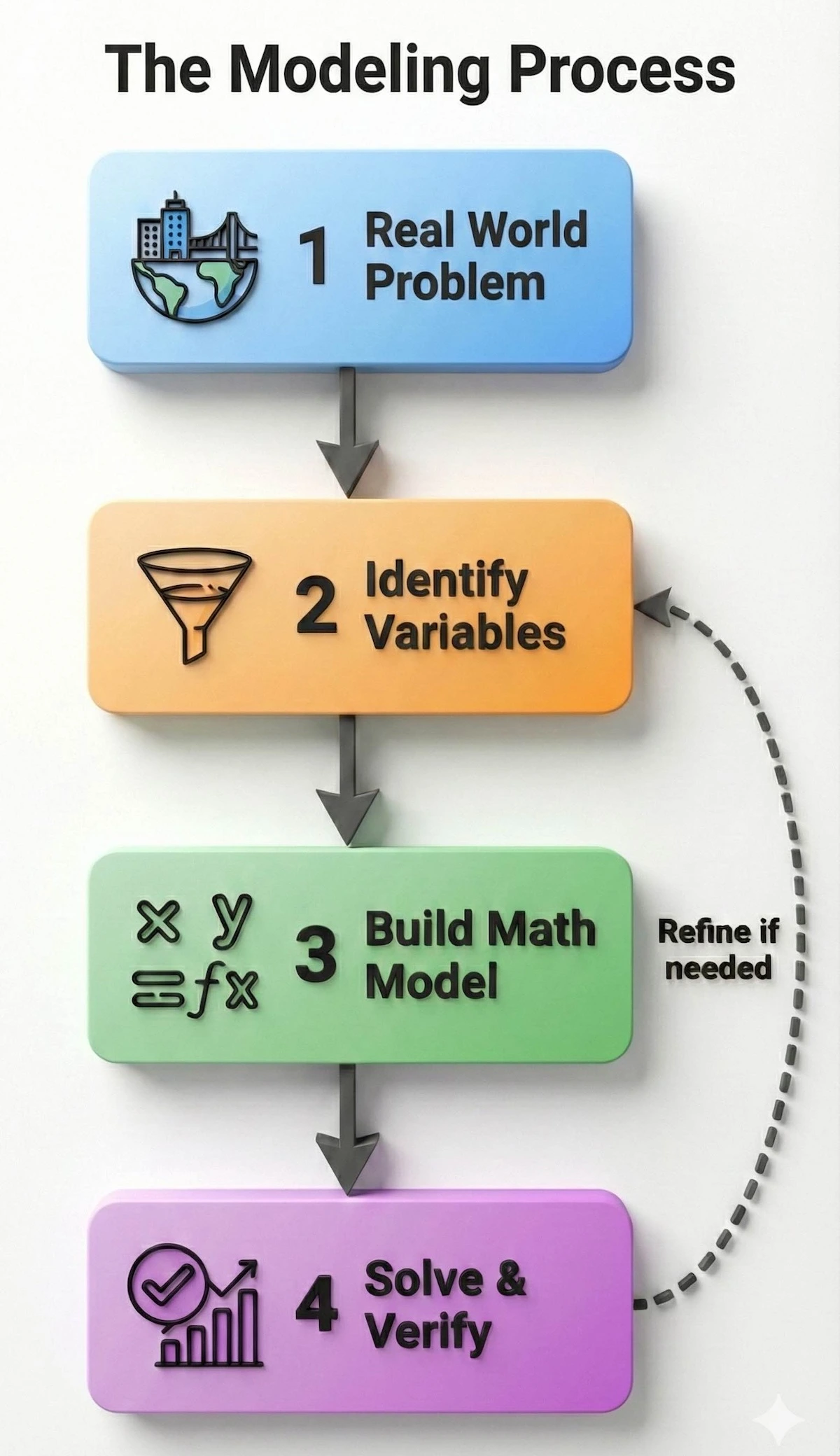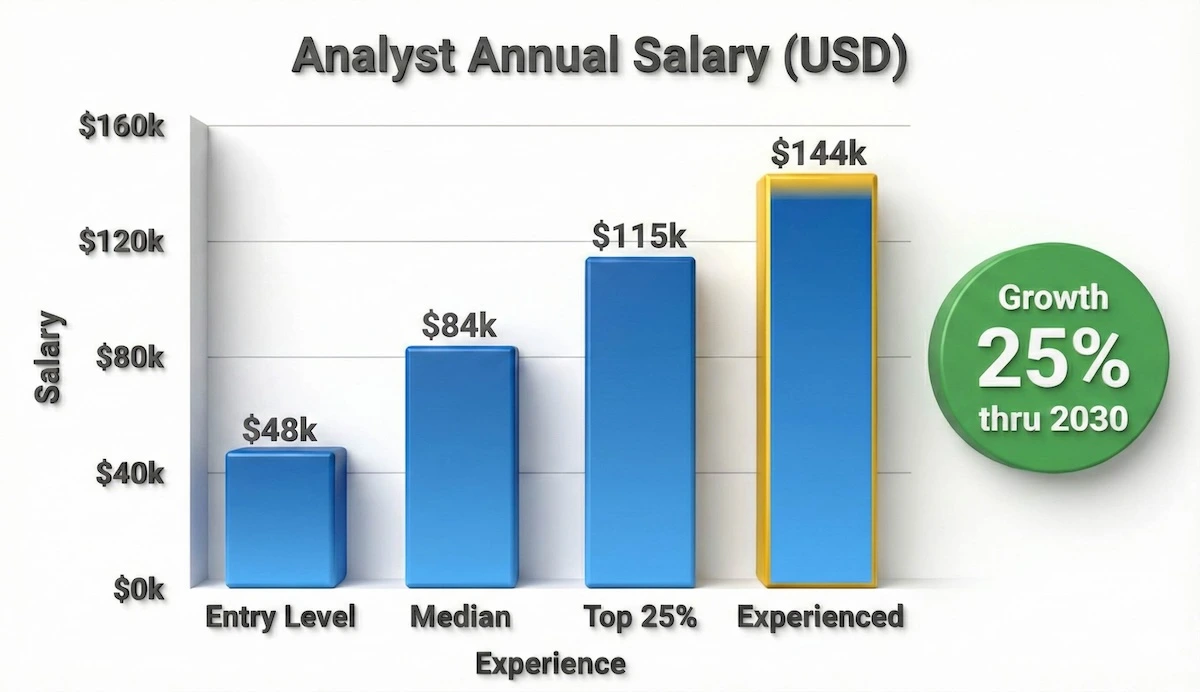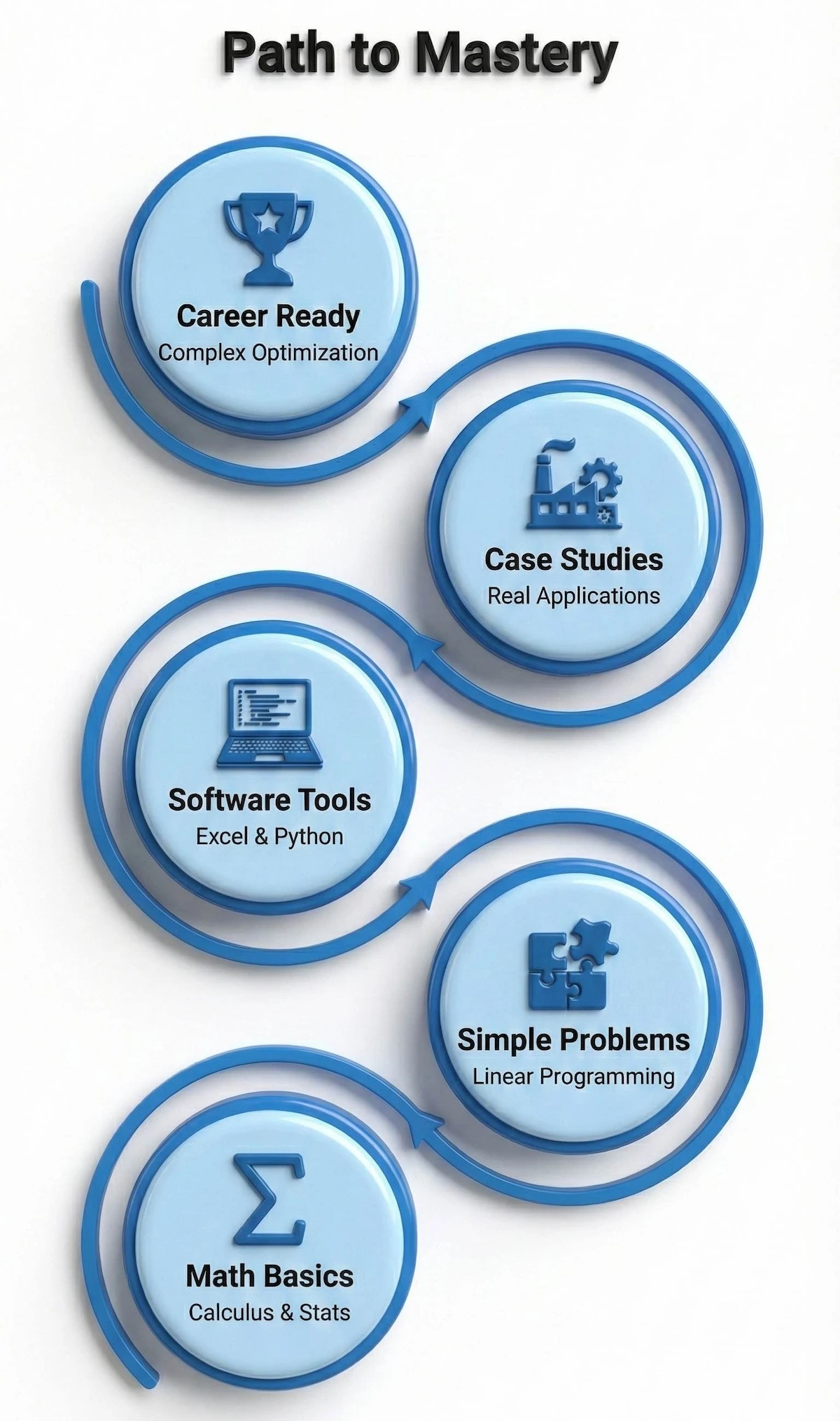Operations Research uses mathematical modeling and analytical methods to solve complex business problems, optimize resource allocation, and improve decision-making across industries like healthcare, manufacturing, and logistics.

The world around us is filled with complex decisions that can make or break organizations. From scheduling airline flights to managing hospital resources, from optimizing supply chains to minimizing manufacturing costs, these challenges require more than intuition—they demand scientific precision. This is where Operations Research (OR) steps in, transforming overwhelming complexity into manageable, mathematically-driven solutions.
Picture Sarah, a logistics manager at a global shipping company, staring at hundreds of delivery routes across three continents. With fuel costs rising and customer demands for faster delivery increasing, she needs to find the optimal balance. Traditional guesswork won’t suffice. This is exactly the type of challenge that Operations Research was designed to solve.
What is Operations Research?
Operations Research emerged during World War II when British military leaders assembled teams of scientists to tackle strategic and tactical challenges using analytical methods. The term “operations research” was coined as these scientists studied military operations to optimize resource allocation and improve strategic decision-making.
Today, Operations Research represents a multidisciplinary field that applies mathematical modeling, statistical analysis, and optimization techniques to solve complex decision-making problems. At its core, OR breaks down complicated problems into basic components and solves them through mathematical analysis, employing three primary characteristics:
These characteristics aren’t just abstract concepts; they are the active tools you will use to solve problems. Let’s visualize how they work together.

These three core pillars form the foundation of every Operations Research solution, helping transform data into confident decisions.
As shown above, these three elements combine to support the ultimate goal of every OR project: data-driven decision making.
Optimization involves comparing all possible options to find the best solution under given circumstances. Simulation allows researchers to build models that replicate real-world systems to test solutions before implementation. Probability and Statistics help uncover insights, assess risks, and make reliable predictions using mathematical algorithms and data.
The discipline encompasses various techniques including linear programming, network analysis, queuing theory, game theory, and decision analysis. These tools work together to provide quantitative bases for executive decision-making across organizational operations.
Why Operations Research Matters Today
The modern business landscape generates more data than ever before, making Operations Research increasingly vital for organizations seeking competitive advantages. The field’s applications span virtually every industry, demonstrating its universal relevance in today’s data-driven world.
While the math stays the same, the context changes dramatically depending on where you work. Here is a snapshot of how major sectors utilize these skills.

From optimizing hospital beds to speeding up deliveries, Operations Research drives efficiency across these major global sectors.
Whether you are interested in finance or healthcare, the fundamental OR toolkit makes you valuable in any of these high-demand sectors.
In healthcare, Operations Research revolutionizes patient care through optimized hospital operations, improved resource allocation, and enhanced scheduling systems. Hospitals use OR techniques like queuing models to reduce patient waiting times while workforce optimization leads to better staff utilization and significant cost savings. The pharmaceutical industry leverages OR for drug development, utilizing mathematical modeling and simulation to identify optimal dosing regimens and determine efficient trial designs.
Manufacturing companies employ Operations Research for production scheduling, inventory management, and quality control optimization. Supply chain management benefits enormously from OR techniques, with companies using forecasting models to predict demand patterns and optimize distribution networks.
The technology sector relies heavily on Operations Research for network optimization, algorithm development, and resource allocation in cloud computing environments. Financial institutions use OR for portfolio optimization, risk management, and fraud detection systems.
Even government agencies and public health organizations utilize Operations Research to design effective health interventions, assess policy impacts, and plan for emergency response scenarios. The versatility of OR makes it applicable to urban planning, transportation systems, and environmental management.
Common Challenges Students Face in Operations Research
Despite its practical importance, Operations Research presents significant learning challenges that often overwhelm students. Understanding these obstacles is crucial for developing effective learning strategies and seeking appropriate academic support.
Mathematical Complexity represents the primary hurdle for most students. OR requires solid foundations in calculus, linear algebra, statistics, and probability theory. Students often struggle with translating real-world problems into mathematical models, a skill that requires both theoretical knowledge and practical insight.
Abstract Problem Modeling poses another significant challenge. Students must learn to identify key variables, constraints, and objectives within complex scenarios. This process demands strong analytical thinking and the ability to simplify complicated systems without losing essential elements.
This translation from reality to math is often the hardest step for beginners. The following flowchart breaks this ‘modeling’ phase into four manageable steps.

Mastering this four-step translation process is the key to overcoming the “Abstract Problem Modeling” challenge.
By following this structured workflow, you can ensure you don’t miss critical variables before you even begin your calculations.
Software Proficiency requirements add technical complexity to the learning process. Modern Operations Research relies heavily on specialized software like CPLEX, Gurobi, Python, R, and MATLAB. Students must master both the mathematical concepts and the technical tools simultaneously.
Interdisciplinary Nature of OR can confuse students accustomed to single-subject focus. The field requires understanding business contexts, engineering principles, statistical methods, and computer science applications all within one framework.
Data Quality and Integration challenges mirror real-world OR applications. Students must learn to work with incomplete, inconsistent, or unreliable data while still producing meaningful analyses and recommendations.
Time-Intensive Computational Work can overwhelm students, especially when dealing with large-scale optimization problems that require extensive computing resources and patience for iterative solution processes.
How Expert Operations Research Tutoring Can Help
- Professional Operations Research tutoring addresses these learning challenges through personalized, structured approaches that transform complex concepts into manageable learning experiences. Expert tutors provide the bridge between theoretical knowledge and practical application that students desperately need.
- Operations Research tutoring online offers several distinct advantages over traditional classroom learning. Online platforms enable students to access expert help regardless of geographical constraints, providing flexibility that accommodates busy academic schedules. Interactive digital tools enhance visualization of complex mathematical models, making abstract concepts more concrete and understandable.
- Experienced Operations Research tutor professionals bring real-world industry experience into the learning process. They can share practical insights about how OR techniques apply to actual business challenges, helping students understand the relevance and impact of their studies. This connection between theory and practice significantly improves student engagement and retention.
- Operations Research teaching through one-on-one tutoring allows for customized learning pace and focus areas. Expert tutors can identify individual student weaknesses and design targeted interventions. Whether a student struggles with linear programming formulations or queuing theory applications, personalized attention ensures comprehensive understanding before moving to more advanced topics.
- Operations Research homework help extends beyond simple problem-solving assistance. Professional tutors guide students through systematic problem-solving approaches, teaching methodology rather than just providing answers. This approach builds long-term analytical capabilities that serve students throughout their academic and professional careers.
- The Operations Research tutor online experience typically includes interactive problem-solving sessions, step-by-step solution explanations, and access to diverse practice problems. Many platforms offer 24/7 availability, ensuring students can get help when they need it most, particularly during exam preparation periods or project deadlines.
- Operations Research assignment help services focus on developing student understanding while ensuring academic integrity. Professional tutors help students organize their thinking, validate their approaches, and refine their analytical methods without compromising educational objectives.
- Students who hire an Operations Research tutor often report significant improvements in confidence and academic performance. The personalized attention helps clarify misconceptions, reinforces correct methodologies, and provides encouragement during challenging learning phases.
- Operations Research hw help encompasses various OR topics including linear programming, integer programming, network models, simulation, decision analysis, and queuing theory. Expert tutors ensure students master fundamental concepts before progressing to specialized applications.
Operations Research in the Global Job Market
The career prospects for Operations Research professionals are exceptionally promising, with the field experiencing unprecedented growth across multiple sectors. Understanding the job market landscape helps students appreciate the value of mastering OR skills and investing in quality education.
The U.S. Bureau of Labor Statistics projects 25% employment growth for Operations Research analysts through 2030, making it one of the top 20 fastest-growing professions this decade. This growth rate significantly exceeds the average for all occupations, reflecting the increasing demand for analytical decision-making expertise in data-driven organizations.
Salary prospects for OR professionals are highly attractive across different experience levels. In the United States, Operations Research analysts earn median salaries of approximately $83,640 annually, with the top 25% earning over $115,190. Entry-level positions typically start around $48,050, while experienced professionals can earn up to $144,330 annually.
Numbers often speak louder than words when it comes to career planning. The chart below compares salary expectations as you gain experience in the field.

With a 25% growth rate and six-figure earning potential, OR offers one of the strongest financial career paths in engineering.
With the top tier earning significantly over six figures, the return on investment for mastering these complex mathematical skills is substantial.
Industry diversity provides OR graduates with numerous career path options. The finance and insurance sector employs 28% of Operations Research analysts, offering roles in risk assessment, portfolio optimization, and fraud detection. Professional, scientific, and technical services account for 23% of OR employment, focusing on consulting, research, and specialized analysis services.
Manufacturing industries offer 6% of OR positions, emphasizing production optimization, supply chain management, and quality improvement initiatives. Federal government agencies provide another 6% of opportunities, particularly in defense, transportation, and public policy analysis.
International opportunities are expanding rapidly as global organizations recognize OR’s value in optimizing complex operations. Countries like India show strong salary growth for OR professionals, with experienced analysts earning between ₹18.1 lakhs to ₹126.8 lakhs annually.
Emerging technology sectors create new OR applications in artificial intelligence, machine learning, and big data analytics. These interdisciplinary roles often command premium salaries and offer rapid career advancement opportunities.
Educational requirements typically include bachelor’s degrees in mathematics, engineering, or related quantitative fields, with many employers preferring master’s degrees in Operations Research, Business Analytics, or Management Science. Advanced degrees significantly improve salary prospects and leadership opportunities.
Tips for Students to Learn Operations Research Effectively
Mastering Operations Research requires strategic approaches that combine theoretical understanding with practical application skills. These proven learning strategies help students navigate OR complexity while building lasting competencies.
Success in OR is a marathon, not a sprint. Use the following roadmap to structure your study plan effectively, starting from the basics.

Don’t try to learn everything at once—follow this proven five-step progression to build a solid foundation.
Notice how software comes after the math basics? Rushing to the tools without understanding the theory is a common mistake to avoid.
Build Strong Mathematical Foundation before diving into advanced OR techniques. Ensure solid understanding of calculus, linear algebra, statistics, and probability theory. These mathematical tools form the backbone of all OR applications and cannot be bypassed or superficially learned.
Practice Problem-Solving Systematically by working through diverse OR problems regularly. Start with simple linear programming exercises and gradually progress to complex multi-objective optimization scenarios. Consistent practice develops pattern recognition and solution intuition that proves invaluable in advanced applications.
Master Software Tools Progressively rather than attempting to learn multiple programs simultaneously. Begin with user-friendly tools like Excel Solver, then advance to specialized OR software such as LINGO, CPLEX, or open-source alternatives like Python with OR-Tools. Hands-on experience with software reinforces theoretical concepts through practical application.
Connect Theory to Real-World Applications by studying case studies from various industries. Understanding how OR techniques solve actual business problems provides context that makes abstract mathematical concepts more meaningful and memorable.
Form Study Groups with classmates to discuss challenging concepts and share problem-solving approaches. Collaborative learning often reveals different perspectives and solution methods that individual study might miss. Teaching concepts to peers also reinforces personal understanding.
Seek Regular Feedback from instructors, tutors, or industry professionals. Operations Research teacher guidance involves complex methodologies where small errors can lead to completely incorrect solutions. Regular guidance helps identify and correct mistakes before they become ingrained habits.
Utilize Multiple Learning Resources including textbooks, online courses, video lectures, and professional tutorials. Different explanations of the same concepts often provide the clarity needed to achieve comprehensive understanding.
Apply OR Thinking to Daily Decisions by identifying optimization opportunities in personal life. Whether planning efficient travel routes, optimizing study schedules, or managing personal finances, applying OR principles in familiar contexts develops analytical thinking skills.
Conclusion
Operations Research stands at the intersection of mathematics and real-world problem-solving, offering students and professionals powerful tools to tackle humanity’s most complex challenges. From its wartime origins to its current applications in healthcare, business, and technology, OR continues evolving to meet the demands of our increasingly data-driven world.
The learning journey in Operations Research may present significant challenges, but the rewards—both intellectual and professional—are substantial. Students who master OR techniques position themselves for careers in the fastest-growing analytical profession of this decade, with excellent salary prospects and diverse industry opportunities.
Frequently Asked Questions
Q1 What mathematical background do I need to succeed in Operations Research?
You need strong foundations in calculus, linear algebra, statistics, and probability theory to handle OR’s mathematical modeling requirements effectively.
Q2 How long does it typically take to complete an Operations Research degree?
A bachelor’s degree takes four years, while a master’s degree requires an additional 1-2 years of specialized study in OR techniques and applications.
Q3 What software tools are essential for Operations Research professionals?
Key tools include Python, R, MATLAB, Excel Solver, CPLEX, Gurobi, and LINGO for modeling and solving optimization problems.
Q4 Can I pursue Operations Research without an engineering background?
Yes, students from mathematics, statistics, economics, or business backgrounds can successfully transition into OR with appropriate coursework preparation.
Q5 What industries offer the best career opportunities for Operations Research graduates?
Finance, consulting, healthcare, manufacturing, technology, and government sectors provide excellent opportunities with competitive salaries and growth potential.
Q6 Is Operations Research suitable for students who prefer theoretical or applied mathematics?
Operations Research appeals to both preferences, combining rigorous mathematical theory with practical problem-solving applications across diverse industries.
Related Subjects
Decision Modelling & Analysis
Dynamic Programming
Game Theory
Inventory Management
Linear Programming
Markov Chains
Multi-Criteria Decision Making and Analysis MCDA/MCDM
Nash Equilibrium
Supply Chain Management
******************************
This article provides general educational guidance only. It is NOT official exam policy, professional academic advice, or guaranteed results. Always verify information with your school, official exam boards (College Board, Cambridge, IB), or qualified professionals before making decisions. Read Full Policies & Disclaimer , Contact Us To Report An Error

